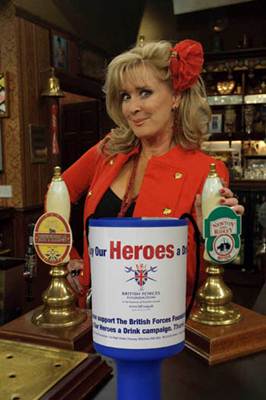Three new studies explore celebrity engagement with charities
Three recent academic studies have explored charities’ use of celebrities to promote their causes.
People more likely to donate if celebrity has a fit with the cause
The most recently publishedstudy reveals that people say they are more likely to donate to a charity when the celebrity advocate has a “functional fit” with that charity.
A survey carried out in Australia asked 165 members of the public about the attitudes to two sports-related charities (International Sports Foundation and United Through Sport) that had sports personalities or comedians as their partner; and two comedy-related charities (Laughter Matters and Laughter Heals) that were supported by sportsmen or comedians.
The study finds that people were more positive toward and more likely to donate to the sports charities when their celebrity advocates were sports personalities (in the experiment, Michael Phelps and Raphael Nadal), and to the laughter charities when their celebrity advocates were comedians (Russell Brand and Ricky Gervais).
The paper, by Jasmina Illicic of Adelaide University and Newcastle [Queensland] University’s Stacey Baxter, concludes: “These findings…demonstrat[e] that celebrity co-branding partnerships are more effective when there is a fit between both brands.”
The paper – published in the current edition of the International Journal of Nonprofit and Voluntary Sector Marketing (IJNVSM) – says that “functional fit between celebrity and charity reduces scepticism and results in increased perceptions of celebrity philanthropy”.
But it also says that a “misfit” between charities and celebrities does not result in negative attitudes: “While findings suggest that a celebrity seeking to fulfil egoistic goals should optimally align with a functionally fitting charity, this approach may not be crucial, with any charity alignment leading to positive outcomes for the celebrity.”
However, another paper calls into question charities’ uses of celebrities.
Celebrity advocacy reinforces idea that the only ‘effective action’ is giving money
The culmination of a major three-year investigation into celebrity advocacy in poverty relief – published this month in the International Journal of Cultural Studies – concluded that charities’ use of celebrities in the UK was “ineffective”.
They say there is a “widespread belief in the power of celebrity advocacy that belies the evidence of its actual reach and influence”.
For example, more than two-thirds of more than 1,200 people surveyed could not link any celebrity with a list of seven well-known charities and aid organisations (NGOs) the researchers mentioned.
And 38 per cent “strongly” or “mildly” disapproved of celebrities supporting poverty reduction in the developing world.
But the study finds that, counter-intuitively, people who are less interested in celebrity culture are those with the most positive attitudes towards celebrities supporting poverty relief; while those who are receptive to celebrity news are less favourable to their involvement in poverty relief.
It could be that the opposition to celebrities becoming involved in poverty relief is because, according to Illicic and Baxter’s research, they don’t see the “functional fit”.
The researchers – Dan Brockington of Manchester University and Spencer Henson of Sussex University – say that “underpinning” the comments made in the focus groups stage of their research is that celebrity advocacy promotes the belief that “charitable action is about giving and receiving money”.
They say celebrity advocacy “does little to promote active involvement with causes other than by giving money”, and criticises it for not challenging the “charitable frame of reference” that the most effective action citizens can take is to donate money.
The paper also points out celebrities often gets more out of advocacy than the charity they are supporting, even though this wasn’t the reason they embarked on their involvement with the charity.
But the third recent paper on charity advocacy finds there’s nothing wrong with this.
Advertisement
Celebrities should not feel guilty about benefiting from charity partnerships
A study of celebrity advocates’ own views of their involvement – published in the IJNVSM in May – says that celebrities support causes for a variety of motives that lie and a continuum from egoistic to altruistic.
Sean Kelly and Gareth Morgan (of the Centre for Voluntary Sector Research at Sheffield Hallam University) and Tracy Coule form Sparks Charity examined the views and motivations of the 591 celebrity volunteers who support Sparks Charity, looking at all the other charities they support.
They found that celebrities engage with charities to “achieve important psychological goals” and that “feeling good and having fun” was cited as one of the best aspects of working with charities
The authors say that: “No [celebrity] volunteer should be made to feel guilty about deriving pleasure from supporting good causes”.




